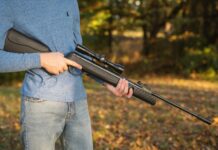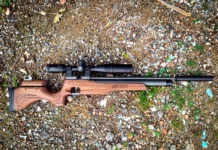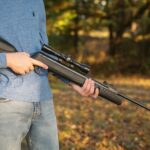Trolling fishing is a popular technique used by anglers to catch this prized freshwater game fish. The method involves dragging one or more baited lines or lures behind a moving boat at varying speeds and depths until a walleye takes the bait.
Trolling for walleye can be done on freshwater lakes or rivers, and requires specialized equipment and techniques to be successful. Walleye trolling can be a fun and challenging way to target these elusive fish and is a favorite among many anglers.

Table of Contents
- Trolling Fishing A Historical Overview
- Essential Gear for Successful Walleye Trolling Fishing
- Boats Suitable For Trolling Fishing
- Trolling Motors For Walleye Trolling
- Best Lures and Baits for Walleye Trolling
- Recommendations For Lures Based On Water Depth
- Speed And Depth For Walleye Trolling
- Tips for Avoiding Snags and Tangles
- Locations for Trolling Fishing for Walleye
- Enjoy Your Trip Walleye Trolling Fishing
- Guided Walleye Fishing With Captain Lonney
Trolling Fishing A Historical Overview
Walleye trolling has been practiced for many years, with the first recorded use of this technique dating back to the early 1900s.
At the time, anglers used hand-cranked reels to drag baited lines behind their boats.
As technology improved, the method became more efficient with the development of electric trolling motors and other specialized equipment.
Today, walleye trolling is a popular sport enjoyed by anglers all over the world, and has even led to the development of specialized boats and equipment designed specifically for this type of fishing.
Despite the advancements in technology, the basic principles of trolling fishing for walleye remain the same – drag a baited line or lure behind a moving boat to attract and catch walleye.

Essential Gear for Successful Walleye Trolling Fishing
To be successful at trolling fishing for walleye, you’ll need a few key pieces of equipment.
The first is a trolling rod and reel setup, which should be strong enough to handle the weight of your lures and the fight of a walleye.
Look for a trolling rod that is at least 7 feet in length and has a medium-heavy power rating. Using a sensitive fishing rod can aid in detecting bites and setting the hook properly
Opting for a reel with a smooth drag system can assist in wearing down a walleye and reducing the risk of line breakage. A drag system that is rated for at least 10-12 pounds can help you handle a larger walleye.
The Penn Fathom Lever Drag 2 is an excellent option to consider.
With its user-friendly design and lever drag system, this reel provides a smooth and intuitive experience.
A level wind reel is ideal for trolling, as it distributes line evenly across the spool and can help prevent tangles.
A downrigger or planer board can help you get your lures to the right depth and keep them there.
Investing in a quality trolling rod and reel setup can make a big difference in your success when trolling for walleye.
You’ll also need a trolling motor or an outboard motor that is powerful enough to move your boat at a slow and steady pace.

Boats Suitable For Trolling Fishing
Having the right boat can make a big difference in your success.
Ideally, you’ll want a boat that is stable, maneuverable, and has plenty of space for you and your gear.
A flat-bottomed boat, such as a jon boat or a bass boat, can be a good choice for trolling, as they offer good stability and maneuverability in calm waters.
Alternatively, a larger boat with a deep-V hull can be a good choice if you plan to fish in rougher waters or if you need more space and storage for your gear.
Equipping your boat with a trolling motor and depth finder can assist you in navigating the water and identifying the prime locations for trolling fishing.|
To ensure a successful fishing trip, it’s crucial to have a high-quality net and cooler on hand.
Trolling Motors For Walleye Trolling
There are many great trolling motors available in the market, but one of the best options for trolling for walleye is the Minn Kota Endura C2 55. This motor is known for its reliability, durability, and quiet operation. It has a 55-pound thrust, making it powerful enough to handle rough water conditions and strong currents. Additionally, it features a telescoping handle, allowing for easy control and maneuverability. Overall, the Minn Kota Endura C2 55 is an excellent choice for any angler looking for a quality trolling motor for walleye fishing.

Best Lures and Baits for Walleye Trolling
Walleye are often attracted to lures that mimic the movements of their natural prey, such as minnows or leeches.
The best walleye lure baits can vary depending on factors such as water temperature, time of day, and the specific body of water you’re fishing
Recommended baits are crankbaits, spinnerbaits, and spoons. Designed to attract walleye.
A depth finder or fish finder is also useful for locating schools of walleye.
It also helps determining the depth at which they are feeding.

Recommendations For Lures Based On Water Depth
Less than 15 feet a floating crankbait or spinner rig can be effective.
These lures can be trolled at a slow speed near the surface, which can attract walleye that are feeding on smaller baitfish.
15-30 feet. A deep diving crankbait or a jig and plastic tail can work well in medium depth water.
These lures can be trolled at a moderate speed to get them down to the right depth and keep them there.
Use a downrigger for depths over 30 feet.
A deep diving crankbait or a spoon can work well in deep water, as they can replicate the movements of larger baitfish that walleye may be feeding on.

Speed And Depth For Walleye Trolling
Speed and depth are critical factors to consider when trolling for walleye.
Generally, a speed of 1.5 to 2.5 miles per hour is a good starting point for trolling.
You may need to adjust your speed based on the behavior of the fish and the conditions of the water.
If you’re not getting bites, try slowing down or speeding up your trolling speed to see if that makes a difference.
As a general rule, walleye tend to be found at deeper depths during the day and shallower depths in the early morning or evening.
Using a depth finder can be helpful in determining the ideal depth for your lure.
Once you’ve found the right depth, be sure to maintain a consistent speed and depth as you troll to maximize your chances of getting a bite.

Tips for Avoiding Snags and Tangles
Snags and tangles are a common problem when trolling for walleye, and can quickly become frustrating if you’re constantly having to untangle your lines or retrieve snagged lures.
One of the best ways to avoid snags is to keep your lure at the right depth for the conditions of the water you’re fishing in.
Using a line counter reel can be helpful in keeping track of the depth of your lure and reducing the risk of snags.

Locations for Trolling Fishing for Walleye
Wisconsin is home to some of the best walleye trolling locations in the United States.
One of the most popular destinations for walleye fishing in the state are Green Bay & Lake Winnebago.
Green Bay is located in northeastern Wisconsin.
The bay covers an area of over 1,600 square miles and has an average depth of only 20 feet.
Ideal habitat for walleye. Some of the most productive areas for walleye trolling in Green Bay include the waters around the Fox River, the Pensaukee River, and the Oconto River.
Known for producing some of the largest walleye catches in the country.
Other notable lakes for walleye trolling in Wisconsin include Lake Michigan, and Lake Superior.
When choosing a location to troll for walleye, it’s important to consider factors such as water temperature, depth, and structure.
Walleye tend to be most active in water temperatures between 55-68°F and are often found near structures such as drop-offs, weed beds, and submerged rock piles.
It’s also important to pay attention to weather conditions, as changes in wind and cloud cover can affect the feeding patterns of walleye.

Enjoy Your Trip Walleye Trolling Fishing
Don’t forget to take in the scenery and appreciate the beauty of the great outdoors while you’re out on the water.
Anglers are required to obtain a fishing license and follow specific size and bag limits for different fish species.
It is important to avoid damaging habitats and follow proper waste disposal methods to avoid polluting waterways. Grab your gear, head out to your favorite fishing spot, and enjoy the thrill of trolling for walleye.

Guided Walleye Fishing With Captain Lonney
For 25 years Green Bay Trophy Fishing has guided and provided helpful information to anglers in and around Door County. We are some of the most experienced fishing guides in Green Bay and pride ourselves on being experts on everything related to fishing in the area.
If you are interested in booking a walleye fishing charter, you can view our rates or contact us here.







































![Air gun 101: The differences between .177 & .22 – Which jobs they do best ? [Infographic]](https://airgunmaniac.b-cdn.net/wp-content/uploads/2024/11/1773-150x150.jpeg)


